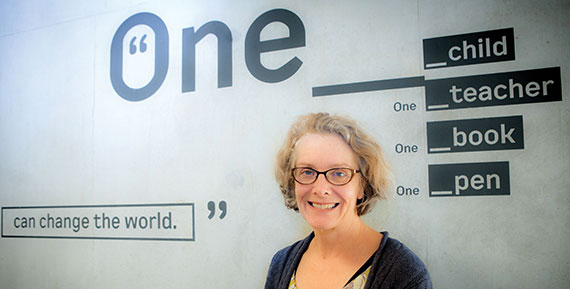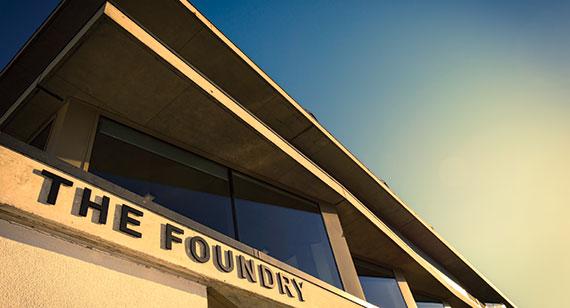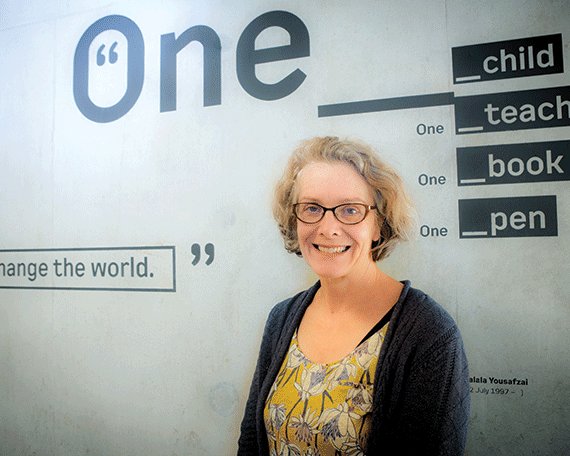Peanut butter and jam, egg and cress, Ant and Dec. All these things go together perfectly, but what about property and ethics? Not if you ask Joe Public. Property is evil. It is all about the rich getting richer and taking advantage of the average man on the street. It is about nothing but making profits.
That, sadly, is not a massive exaggeration of the public’s view of the real estate industry. Real estate is a business and business must make money, but property and doing good do not have to be mutually exclusive. Or at least that is the message that Oxford-based investor/developer Ethical Property Company stands by.

We are called the Ethical Property Company and people are always asking, ‘How can you be called that? It’s a misnomer’,” says managing director Susan Ralphs. “But I think that is wrong.”
Ethical Property Company, a business founded in 1998 by Andrew King and Jamie Hartzell, was conceived out of a desire to house the numerous co-operatives springing up in Bristol. The aim was to create a quality space that co-operatives and other social impact and charitable businesses could afford to operate from.
One centre soon grew to five and by the end of last year the group had some 23 properties across the UK supporting 1,000 charitable, community and social impact businesses.
The company says that its principal activity is to “support charities, co-operatives, community and campaign groups and ethical businesses by developing and running focal points for social change”.
“At these centres,” says the firm, “tenant organisations benefit from reasonable rents, flexible tenancy terms and office facilities designed to meet their needs. They also become part of a working community where they can exchange skills and ideas under one roof.”
And it claims to be able to do all this while still turning a profit that makes it attractive to investors.
Some 1,400 of them, according to Ralphs. “They invest with us because they want a dividend, but also because they want us to provide fair, flexible accommodation to a range of organisations that do good and have a multiple impact,” she says. “There are lots of people who want to do that but there isn’t often an easy way to do it.”
She adds: “Supporting civil society is very important in the world, but so is having a strong economy. Ethical Property merges those. We are supporting lots of really important organisations and doing that in a very social and green way, but we are also a thriving commercial company making profits.”
In conversation with Susan Ralphs
Low rents, short leases
The business traditionally offers space at around 10% below market rates and provides very short rental periods. It even has a rent hardship fund that struggling tenants can use for a limited period. But if it is not offering sub-standard space, how can it do that and consistently post profit rises (6% in 2015, according to its latest accounts) and pay out a dividend of at least 50% of its operating profit (but often much more, says Ralphs) to shareholders?
A savvy purchasing policy, says Ralphs. The savvy purchase of a circa 30,000 sq ft office block in Old Street, EC1, for £6m in 2004 and even savvier sale of the block in May last year for close to £40m, for example.
Ethical Property will only buy properties that enable it to provide affordable space. This means sites on city fringes or spaces that other firms might not touch.

Ralphs uses the example of the group’s newest operational building, The Foundry in Vauxhall, SW8. When Ethical Property bought it, it was a former shoe polish factory next to one of the area’s gasometers. Although the Vauxhall postcode may have made the site a target buy for residential developers, the proximity to the gasometer removed that competitive element from the buying battle. The property is now home to more than 20 charitable and social impact businesses.
And with the circa £40m sale of Development House in Old Street, EC2, last year, Ethical Property now has a flush of cash that will help it further expand its portfolio.
“We support 1,000 organisations a year throughout the country but there are 160,000 registered charities in the UK,” says Ralphs, “so we are just the tip of the iceberg. I see no reason we couldn’t have an Ethical Property centre in any town the size of Reading and larger.”
Doubling its footprint
Indeed, by 2020 the company plans to double its footprint. Its portfolio currently spans 250,000 sq ft, but Ralphs says that thanks to the loss of affordable office space as a result of permitted development rights, it has demand for more than 400,000 sq ft.
And it is not just demand from ethical businesses that is driving growth for the group: a changing climate and a new generation of people who have surplus income and want to invest for the long term in something commercial but worthwhile have also prompted the company to seek additional shareholders.
While at the moment the group is looking to attract investors to help it expand its business, Ralphs is in early talks with a team at the London Stock Exchange on how companies with ethical investment criteria can list while protecting that criteria. An IPO is a long way off, but it is a consideration should the company want to reach critical mass.
But holding on to its credibility as an ethical company – a hard thing to do when you have to explain the decision making process behind selling a property for an almost £30m profit – is essential, says Ralphs.
She says the ethical in the business’s name refers to how it operates, not just what it invests in.
“The way we work is embedded in everything we do and that gives us more credibility with our tenants and investors,” says Ralphs. “We want to make sure that everyone benefits from property, which means you, the investor, a small retail investor, and a charity.”
So, peanut butter and jam, egg and cress, Ant and Dec and ethics and property? Maybe.
• To send feedback, e-mail samantha.mcclary@estatesgazette.com or tweet @samanthamcclary or @estatesgazette











